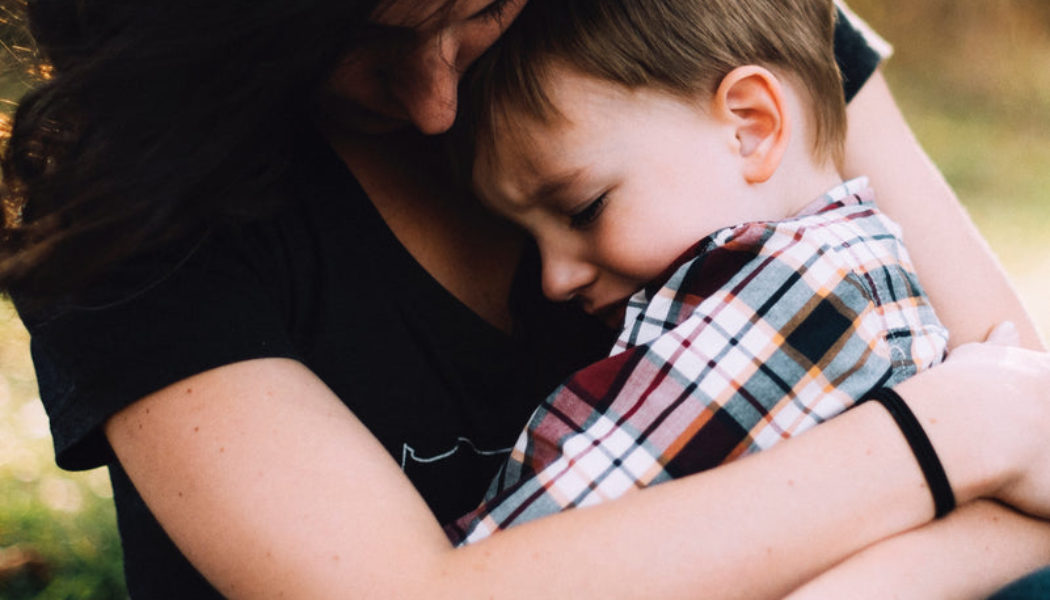
By Noelle Mering
There are inevitable periods in the life of most any mother when she is no longer on top of her mothering game. Perhaps she is post-partum, or ill, or exhausted, or all of the above. I remember many times when, in the throws of small children, nursing a baby and watching my beloved toddler/5 year old/young child act like a not-so-adorable tyrant/whiner/stinker and wondering when the competent woman would arrive to mother this child.
Somewhere in the muck and mire of feeling desperate for a solution, I developed a method to right the ship when a child is slipping into a pattern of misbehavior.
Let me preface this by saying this applies to the normal behavioral issues to which any kid might be prone. This isn’t for more severe dysfunctions.
I’ve not invented these ideas, and they’re surely in dozens of parenting books, but it really helped me to distill everything down to three basic principles. When you’re exhausted, physically limited, and confronted with a child acting up, the last thing you need is a complex parenting method. Behavior charts, graphs, stickers systems were never simple enough for me, but if they work for you then stick with them!
I call it a three-legged-stool to imply that missing one renders the whole useless. When I noticed a child getting off kilter I’d decide that for the immediate time being I’d prioritize implementing this program as attentively and intentionally as I could and it proved to be very effective.
1. Consistent consequences
Usually there’s a particular way in which the child is misbehaving. In a time of relative peace, have an age-appropriate discussion about that behavior starting by describing it. “I see you tend to do X, Y, Z…” Uncover as much as possible the emotion behind the action, sympathize with that feeling of anger, frustration, sadness etc, and then separate the emotion from the action.
Explain how that action is not helpful nor acceptable then communicate what the consequence will be from here on out. And then always follow through.
You can use natural consequences–for example, fighting over a toy means the toy is taken away, a whiney request means the request is denied, anti-social, disruptive behavior means the child must leave a playdate/park/zoo. But it really helps to have one consequence in your back pocket for when you can’t think on your feet. Most importantly, you have to carry it out without argument or exception even if that means momentarily interrupting nursing a baby or leaving a fun event.
2. Unemotional discipline
Strive to avoid reacting to their misbehavior emotionally. How can we expect a 5 year-old to control his or her emotions if we adults cannot? When doling out a consequence, do it calmly without raising your voice. Temper tantrums and fits are the result of a child’s inability or unwillingness to temper his emotions. Modeling control of our own is a necessary condition in their formation.
This applies to older children and teens too. As kids grow, conflicts can become more interpersonal. While sometimes controlled anger or disappointment might be warranted, it is helpful to remember not to take their behavior personally as doing so adds an unnecessary heaviness to the dynamic and can teach them that monitoring our emotions is their responsibility. Inversely, it can also teach them that their good behavior is merely for our sake, rather than for their own flourishing. Left unchecked, this can breed resentment and lead a young adult to deflect from his own agency and responsibility.
3. Love therapy
This is the fun one! Resolving misbehavior isn’t just about dealing with it in the moment; often that child is needing our attention and affection in a special way. Point out and praise good things you see him doing, prioritize having fun together, reading stories, talking about how much you love him. Make it a point to shower him or her with affection and attention.
Cuddle longer! Cuddling is such a common event for our kids that sometimes my pre-teen daughters still ask to cuddle and chat. I’m convinced that this act communicates safety and love in a language that a child absorbs on a deep and enduring level.
More than anything else our children should feel that our love for them is unshakeable, and that assurance undergirds how they feel about everything else we try to teach them–including and especially their concept of who God is. Are they going to grow to be adults who know they are beloved children of a loving father? Helping them to feel the truth of that now makes it more likely they will recognize the truth of it later.
Join Our Telegram Group : Salvation & Prosperity









